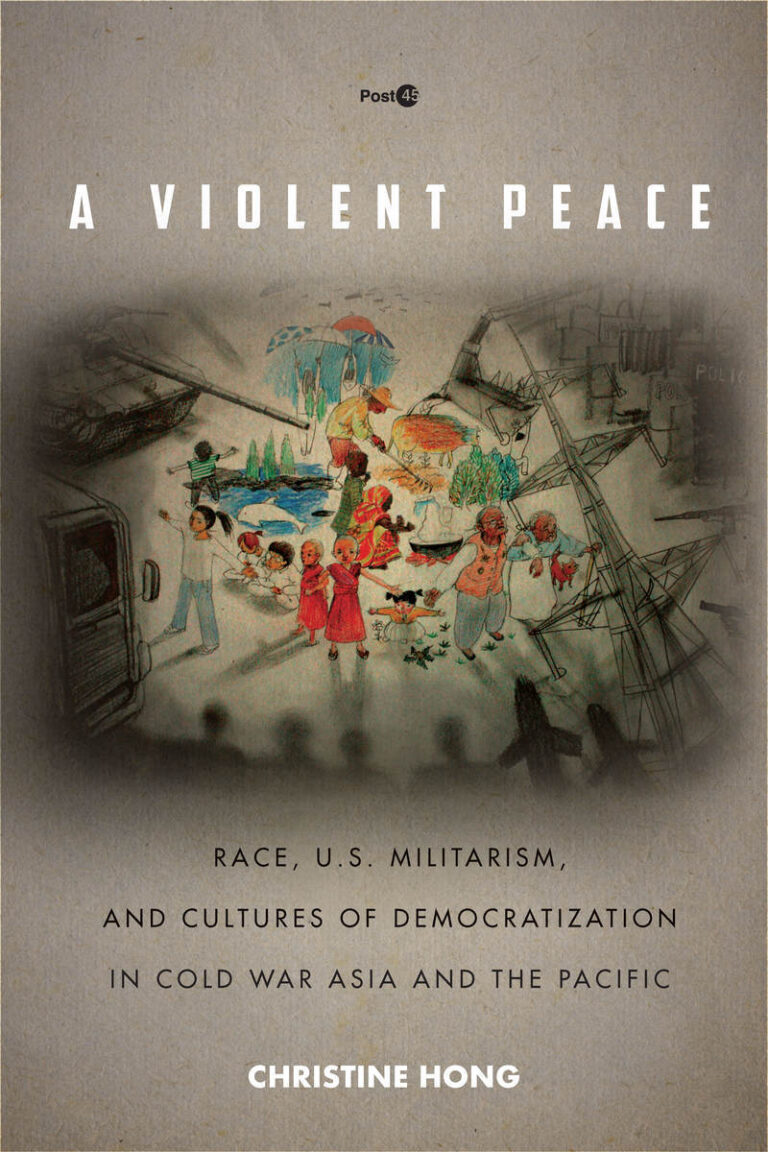Christine Hong’s A Violent Peace examines local and global democratization projects and the many ways that postwar US military tactics and strategies functioned to suppress both counterrevolutionaries abroad in Asia and Black radicals at home in the US. Through literary and visual analyses of works by Ralph Ellison, Ōe Kenzaburō, Miné Okubo, Carlos Bulosan, James Baldwin, and W. E. B. Du Bois, Hong questions how to navigate US post-World War II policies that claim a period of democratized “peace” and racial integration while simultaneously dehumanizing “foreign” bodies through military tactics that police cultural and political belonging.
Keyword: militarism
Review of Postcolonial Grief: The Afterlives of the Pacific Wars in the Americas by Jinah Kim (Duke University Press)
Jinah Kim’s Postcolonial Grief engages with the transnational politics of grief, mourning, and militarization across the Pacific. By examining literature and film produced by Japanese and Korean persons across the Asian diaspora, Kim reveals the ways in which loss and melancholia act as insurgent cultural forces. She considers how, despite silencing mechanisms which valorize narratives of reconciliation and pathologize the grief of colonized subjects, colonialism continues to haunt the present. A rich engagement with the overlapping histories of violence across the Pacific, Kim effectively and carefully considers the relationship between liberal narratives of reconciliation, loss, and colonial violence.

